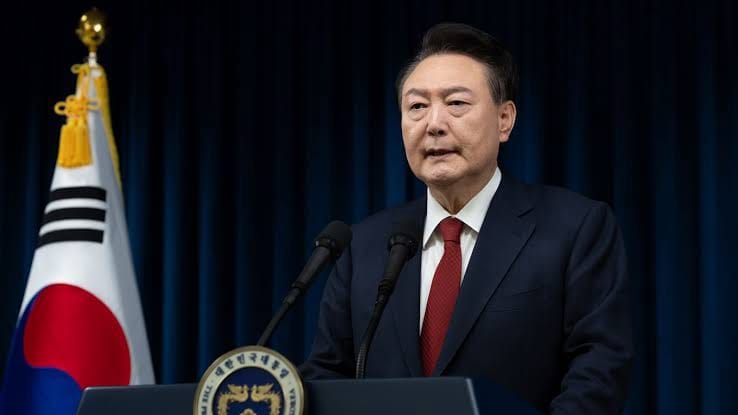South Korea’s ruling party backs impeachment as president refuses to resign
South Korea’s ruling People Power Party (PPP) has announced its support for the impeachment of President Yoon Suk Yeol following his controversial decision to declare martial law, sparking a political crisis and widespread public anger.

South Korea’s ruling People Power Party (PPP) has announced its support for the impeachment of President Yoon Suk Yeol following his controversial decision to declare martial law, sparking a political crisis and widespread public anger.
This dramatic shift came just before Yoon delivered a defiant speech on Thursday, in which he attempted to justify his martial law declaration and rejected mounting calls for his resignation from across the political spectrum.

The PPP had initially resisted backing impeachment, hoping instead that Yoon would voluntarily step down. However, party leader Han Dong-hoon admitted that efforts to persuade the president had failed. “We tried to find a better way than impeachment, but that other way is invalid,” Han said. “Suspending the president from his duties through impeachment is the only way for now, to defend democracy and the republic.”
The move comes as the opposition Democratic Party prepares a new impeachment motion against Yoon, with a vote expected as soon as Saturday. Yoon narrowly avoided an impeachment attempt last weekend after PPP lawmakers boycotted the vote. Now, with the PPP’s full support for impeachment, Han emphasized that party members could vote according to their “belief and conscience.” “I believe our party members will vote for the country and the people,” he added.
Yoon has faced intense criticism since declaring a military emergency on December 3, accusing the main opposition party of “anti-state activities,” sympathizing with North Korea, and obstructing key legislation and budgets. The declaration, which was swiftly blocked by lawmakers, sent shockwaves through the nation, deeply scarred by its past experiences with martial law under military dictatorships. Protests erupted, with security forces clashing with lawmakers and demonstrators in dramatic scenes outside the National Assembly.
The fallout from the martial law announcement has continued to escalate, with growing demands for Yoon’s impeachment. Police have launched a treason investigation into the president and his officials, and a special counsel has been appointed to determine if Yoon committed insurrection by issuing martial law. Yoon has been barred from leaving the country, and South Korean police raided the presidential office in the aftermath. Meanwhile, former defense minister Kim Yong-hyun, who recommended the martial law imposition, was detained last week and later attempted to take his own life while in custody.
In a politically charged atmosphere, Yoon has framed his actions as necessary to break a political deadlock, accusing the opposition of being too lenient on North Korea. “I don’t know which country the party belongs to and which country the National Assembly belongs to,” Yoon said during his speech, reflecting his increasing confrontational stance.
Despite plummeting approval ratings over economic issues and scandals involving his family, Yoon remains defiant. “I will fight until the last moment with the people,” he declared, apologizing for the “short-lived martial law” and asking the public to trust in his “passionate loyalty.”
With the PPP’s newfound support for impeachment, pressure is mounting on Yoon, and the likelihood of his impeachment succeeding is growing as opposition forces rally against him.














